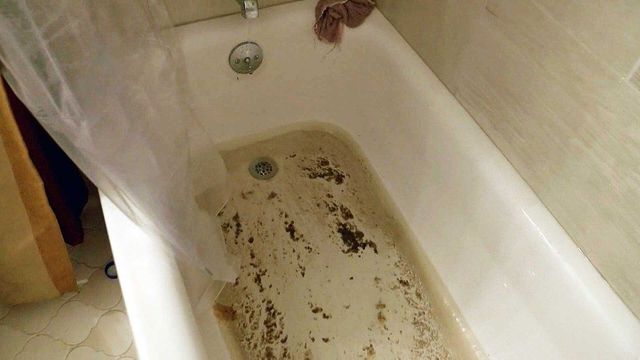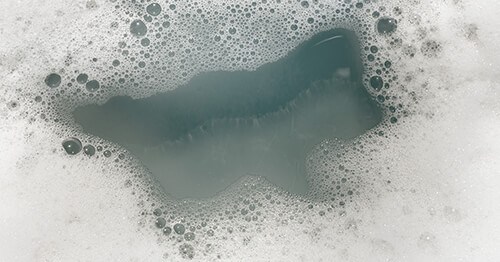We've noticed this great article relating to Why sewage is coming up through your bathtub listed below on the web and reckoned it made good sense to share it with you here.

Sewer backup in the bath tub can be a distressing and unhygienic issue for any house owner. Not just is it troublesome, yet it also poses serious wellness dangers and shows underlying problems with the plumbing system. Comprehending why sewer is turning up through the bath tub is vital for taking suitable action to resolve the trouble successfully.
Intro to the Problem
Common Factors for Sewer Backup
Blockages in the Sewer Line
Among the most common causes of sewer backup is a blockage in the sewer line. This can occur as a result of the accumulation of particles, grease, or foreign things in the pipelines, stopping appropriate flow and creating sewer to back up into your bathtub.
Tree Origin Invasion
Tree origins seeking wetness and nutrients can infiltrate drain lines via little splits or joints. In time, these origins can grow and broaden, creating substantial damages to the pipes and bring about sewer backup problems.
Understanding the Issue
When sewer draws back up into the tub, it's a clear indication of a trouble with the water drainage system. The wastewater that should be moving away from your home is instead discovering its way back into your home, which can bring about substantial damages and carcinogen.
Prospective Reasons
Several variables can contribute to sewage back-up in the bathtub. From blockages in the sewer line to concerns with the plumbing infrastructure, recognizing the root cause is vital for discovering a solution.
Aging Facilities
Older homes might have dated plumbing systems that are a lot more vulnerable to deterioration, fractures, and damage. As pipelines age, they come to be much more vulnerable to leaks and blockages, raising the likelihood of sewage back-up events.
Heavy Rainfall or Flooding
During periods of heavy rainfall or flooding, the sewer system may end up being overloaded with excess water, creating backups and overflows. This can result in sewage backing up into bathtubs and other components inside the home.
Indicators of Sewer Back-up
Foul Odors
Unpleasant odors emanating from drains or fixtures, specifically in the bathroom, might show sewage backup concerns. These odors are frequently solid and relentless, signaling a trouble that requires immediate attention.
Slow Draining Fixtures
Tubs, sinks, and bathrooms that drain pipes gradually or not whatsoever could be experiencing sewage backup. If multiple fixtures are affected concurrently, it's most likely that the issue originates from a typical point, such as the main sewer line.
Gurgling Sounds
Odd gurgling or bubbling noises coming from drains pipes when water is running elsewhere in your home are indicative of air entraped in the plumbing system. This air accumulation can result from sewage back-up and must be examined quickly.
Wellness Dangers Associated with Sewer Backup
Contamination of Supply Of Water
Sewer backup can pollute the water in your home, presenting a major wellness threat to you and your family. Exposure to polluted water can cause intestinal concerns, skin infections, and other health problems.
Mold and mildew Development
Moisture from sewer backup can create suitable problems for mold and mildew development in your home. Mold spores can exacerbate respiratory problems and create allergies in delicate individuals, making punctual cleaning crucial.
Spread of Condition
Sewage contains harmful microorganisms, infections, and bloodsuckers that can cause a series of illness, including liver disease, cholera, and gastroenteritis. Coming into contact with sewer or infected surfaces places you in danger of infection.
Cleaning Up After Sewer Backup
Sanitation Procedures
Completely disinfect and sterilize influenced areas after sewer back-up to eliminate damaging germs and protect against mold growth. Usage ideal cleaning products and protective equipment to ensure risk-free and efficient cleanup.
Repair of Influenced Locations
Fix any kind of damages to floor covering, wall surfaces, or components brought on by sewer back-up. Relying on the level of the damages, you may need to change carpets, drywall, or other products to recover your home to its pre-loss condition.
Immediate Actions to Take
Switching Off Supply Of Water
In case of sewer backup, it's essential to turn off the supply of water to prevent more contamination and damages. Find the primary water shutoff valve in your house and closed it off until the issue can be resolved.
Speaking To an Expert Plumber
Dealing with sewer backup is not a do it yourself task. Call a certified plumber with experience in taking care of sewage-related issues to analyze the situation and carry out essential repair services or cleanups.
Avoiding Contact with Contaminated Water
Till the sewage back-up is resolved, stay clear of contact with polluted water to stop the spread of bacteria and pathogens. Use protective equipment if you have to be in the affected area and clean your hands extensively afterward.
Preventive Measures
Normal Maintenance of Sewer Lines
Schedule regular assessments and upkeep of your drain lines to identify and address prospective issues before they rise right into significant problems. This can consist of clearing out particles, checking for tree root intrusion, and fixing any kind of damaged pipelines.
Setting Up Bayou Valves
Think about setting up backwater shutoffs in your plumbing system to stop sewage from receding into your home throughout periods of heavy rainfall or flooding. These shutoffs instantly close when water starts backing up, securing your residential property from contamination.
Correct Disposal of Family Waste
Stay clear of flushing anything besides bathroom tissue and human waste down the commode to avoid blockages and obstructions in the sewage system line. Dispose of oil, oil, and other home chemicals appropriately to lessen the threat of plumbing troubles.
Why Is Water Backing Up in My Bathtub When I Flush My Toilet?
What to do about a sewer line clog
First, don’t bother with plunging. No amount of plunging will dislodge the clog in a sewer line. The clog is too far away. Plungers are for clogs in the toilet itself, not the sewer line. Plus, the most likely causes of a sewer clog are:
Tree roots Flushed toys or feminine products Grease buildup Those items don’t move easily. And in the case of tree roots, the roots need to be cut out of the pipe and the pipe will need to be repaired.
You’ll need a closet auger. A closet auger is a type of plumber’s snake with a protective cover to keep from scratching the delicate porcelain toilet. If the clog is further down, you may need to remove the toilet or use one of your cleanouts to get to the clog.
We also recommend doing a video inspection of the drain to ensure that the cause of the clog has been completely removed. Otherwise, you could have the same problem again in a few days or weeks.
https://mspplumbingheatingair.com/blog/why-is-water-backing-up-in-my-bathtub-when-i-flush-my-toilet

We had been made aware of that article on from a good friend on a different web page. Don't hesitate to take the opportunity to promote this entry if you enjoyed it. Many thanks for your time invested reading it.
Book Instantly